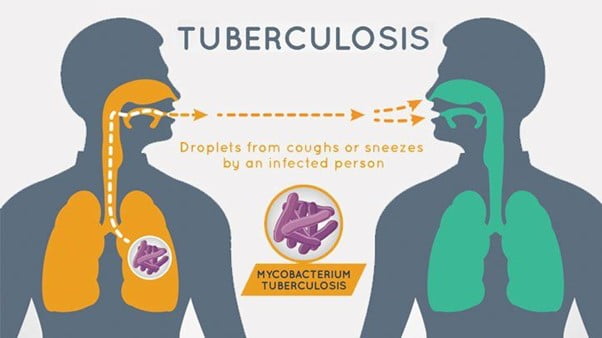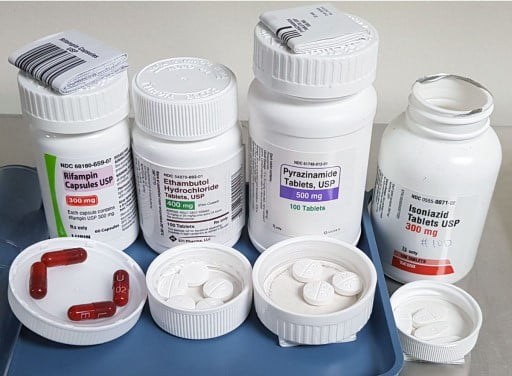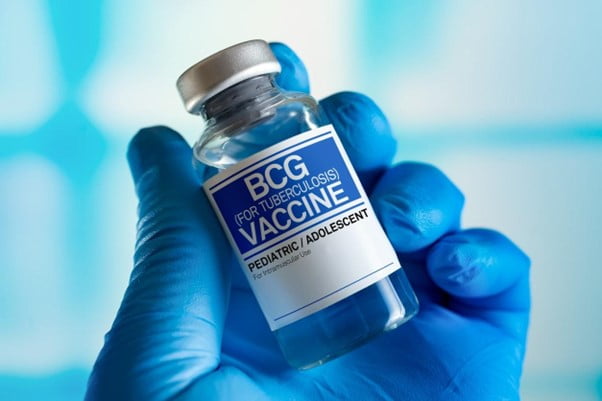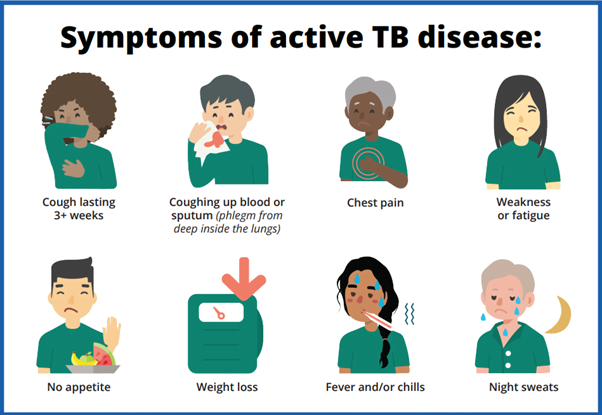Dr Khanyisile Kgoadi
04 April 2024
TB Interview article


Tuberculosis (TB) Awareness and Vaccine Developments.
What is TB and why is it still a health problem is South Africa and the world?
TB is a global health problem, and a quarter of the world population has latent TB. Having latent TB means that the person is infected with the TB bacteria but shows no symptoms and is at risk of developing active TB active. TB is the leading cause of death from a single infectious agent (germ), however it was surpassed by COVID-19 virus in 2021. The world health organisation (WHO) reported that in 2022 there were 7.5 million new people who contracted TB disease, 10.6 million people became sick with TB and 1.3 million people died from TB. About 167 000 of the people who died from TB were people living with HIV. Our country, South Africa is one of the countries with high burden of HIV/TB co-infection. TB was the leading cause of death in South Africa in 2017, thus making our fight against TB of national importance. South Africa is one of the countries that has the highest inequality in the whole world which leads to increases in poverty and people living in poverty and undernutrition are more susceptible to getting infected with TB. Anyone can get infected with TB whether rich or poor. Goal number 3 of the sustainable development goals (SDG) is “Good Health and Well-Being” and it includes ending the TB epidemic by 2030 through reducing the number of TB deaths by 90% and the number of new cases by 80% compared to 2015 levels. Therefore, to improve the health of people infected and affected by TB and save lives, we need improved new diagnostics, treatment, and development of safe and effective vaccines.
TB is caused by a bacteria called Mycobacterium tuberculosis, a germ that spreads in the air. TB transmission occurs when a person who has TB coughs, spits, sneezes, or sings and the infected person inhales the TB germs into their lungs (main organ affected by TB), where they can grow/multiply causing pulmonary TB. However, TB travels to various parts of the body through the blood in the body and affects other organs such as the brain causing TB meningitis. Not everyone who inhales the TB germs develops TB disease because the person’s immune system determines whether you get infected. The immune system protects us from infections and diseases and study of the immune system is called Immunology. The immune system cells (mainly the cells called macrophages) fight against the TB germs when inhaled into the lungs. If the cells win, then no TB infection/disease develops, or you develop dormant/latent TB (90% of people) but if the TB germs overpowers your immune system which happens mostly in people with weak or compromised immune system (such as people living with HIV) then you develop active TB disease (10% of people).
How do we end the TB Epidemic and why is TB Research Important?
To stop the spread of TB, it is important for people to know and recognize the symptoms of TB so they can get tested/diagnosed and treated. These symptoms include; prolonged cough (>3 weeks), coughing up blood and sputum, fever, chest pain, night sweats, weakness, poor appetite, abdominal pain and weight loss. Diagnosing TB still faces challenges because of the poor sensitivity of diagnostic tests, and it is not always possible to get the clinical samples needed for testing. The good news is that TB is treatable and curable with a course of antibiotic drugs and can be cured, however we are still confronted with treatment challenges. Sometimes people do not complete their antibiotic TB treatment course and stop when their they start feeling better because the treatment course is long (6 months or longer). When they fall sick again and go back to taking the TB drugs, they now must deal with TB germs that have become resistant to treatment. Poor treatment adherence leads to development of multi-drug resistant TB (MDR-TB), and again South Africa has high rates of MDR-TB. Several scientific research aimed at TB drugs that reduce the time course for TB treatment are being investigated and some awaiting implementation. Other reasons people stop taking treatment is because of the stigma around having TB because they do not want people and their communities to find out/know that they have TB to avoid discrimination. It is normal for people to fear what they do not know, especially diseases and that is why it is important to create TB awareness to educate the public. Another way to help end TB is through prevention with TB vaccines.
TB Vaccines and latest TB Vaccine Developments
Another way to stop TB is by getting vaccinated. TB can be prevented using the Bacille Calmette-Guerin (BCG) vaccine which was first administered in 1921 (>100 years ago) and remains is the only licensed/approved vaccine against TB. This vaccine is normally administered to babies at birth in South Africa and other countries with high burden of TB cases. BCG is more effective (70-80% vaccine efficacy) in protecting babies and young children from severe forms of TB such as TB meningitis and TB affecting other body organs. However, in adolescents and adults the effectiveness of the BCG vaccine to protect against pulmonary TB (TB of the lungs) is widely variable (0-80% efficacy). BCG vaccine is also used to treat bladder cancer and unfortunately for the past few years we have been facing a shortage of BCG vaccine in the world which threatens our TB prevention strategies.
The search to find other TB vaccines is ongoing and several TB vaccine candidates are in the pipeline. On the bright side we are making progress in the TB vaccine developments, thanks to the new promising TB vaccine M72/AS01Ewhich showed 50% efficacy in reducing pulmonary TB in adolescents and adults in phase 2 clinical trials. The world health organisation (WHO) recommends promoting improvement of this protein fusion vaccine. I feel privileged to have been part of the team at Seattle Children’s Research Institute in the United States who had the opportunity to conduct research on the M72/AS01E vaccine during my Postdoctoral training. The exciting news in the TB field is that the phase 3 clinical trials for M72/AS01Ejust launched in South Africa and other countries (Zambia, Malawi, Kenya, Mozambique, Vietnam, and Indonesia) on the 20th of March 2024, these trials include testing the vaccine in adolescents and adults living with and without HIV. The World TB Day is on the 24th of March every year, the new vaccine highlights the important and huge milestone we as scientists, clinicians and communities are making in our fight to combat TB. If these clinical trials prove that this vaccine is highly effective, then it can become the first vaccine to help prevent TB in 100 years since BCG. These clinical trials taking place in African and Southeast Asian countries are funded by the Bill & Melinda Gates Foundation and UK Wellcome Trust.
Controlling and stopping TB can only be achieved when communities work together with researchers, social TB organizations, national and international programs, governments/politicians, and funders. Scientists like myself can contribute by; advocating for TB awareness, Educating the public and also helping prevent misinformation, sharing clinical & scientific advances with the public to help fight against TB. Together we can End TB!




